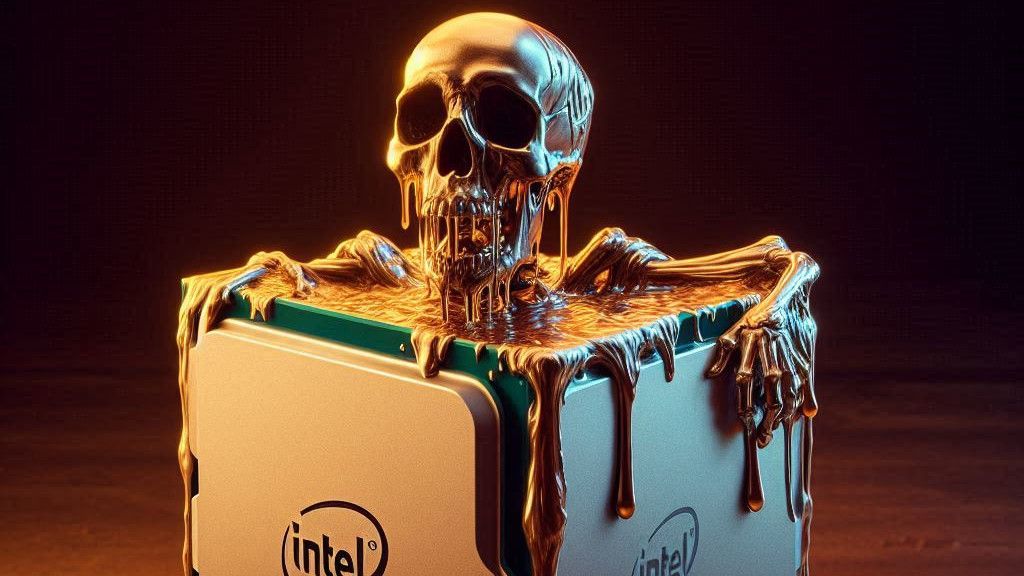what you should Know
- Intel says it has identified the root cause of 13th and 14th generation desktop processor instability; a microcode patch is expected in mid-August.
- More Intel processors than originally thought are potentially affected by the microcode bug, including K, KS, KF, and non-K 65W (and higher) variants.
- Intel is not planning a full recall, instead urging affected users to contact customer support.
It’s been a busy few weeks for Intel and its attempts to stop the bleeding of 13th and 14th generation processors (CPUs). The bleeding I’m talking about includes the instability issues that have plagued Intel’s latest “Raptor Lake” desktop chips (and the 14th generation Raptor Lake refresh) for the past two years.
Widespread reports of crashes and BSODs have been investigated by Intel for years, but on July 22nd we got a big update. Intel’s Thomas Hannaford posted on the Intel Community Board that the company has finally found the root cause of the instability issues. Here’s what Hannaford delivered:
“Based on extensive analysis of 13th/14th generation Intel Core desktop processors returned to us due to instability issues, we have determined that increased operating voltages cause instability issues in some 13th/14th generation desktop processors . Our analysis of the returned CPUs confirms that the increased operating voltage stems from a microcode algorithm that results in incorrect voltage requests to the CPU.
Intel is shipping a microcode patch that addresses the root cause of the increased voltage exposure. We are continuing validation to ensure that the instability scenarios reported to Intel regarding its 13th/14th generation Core desktop processors are addressed. Intel is currently targeting mid-August to release patches to partners after full validation.
Intel is committed to making this right with our customers, and we continue to ask any customers who are currently experiencing instability issues with their 13th/14th generation Intel Core desktop processors to contact support at Intel customers for further assistance.”
To mitigate this a bit, Intel has admitted that its microcode – which is sort of firmware-lite – is the root of the instability problem, and hopefully there will be a solution via motherboard BIOS updates in the coming weeks.
Intel community manager Lex Hoyos also admitted that the increased voltage due to the microcode issue is not the only possible cause of instability. In a post on the Intel subreddit, Hoyos acknowledged that there was a manufacturing issue leading to oxidation that was discovered and fixed in 2023. This issue only affects some 13th generation chips.
Intel’s instability is more widespread than first thought
Here things take a turn. While the problem was once thought to affect only the high-performance Core i7 and Core i9 chips typically reserved for enthusiasts, a recent Verge Q&A with Hannaford revealed that the problem is more widespread than first thought.
When asked how many Intel chips could be affected by this bug, Hannaford revealed that all Raptor Lake chips running at 65W or higher could be affected. This even includes some non-K 13th and 14th generation chips, as well as K, KF and KS models. As with high performance Raptor Lake/Refresh Intel chips, there is no guarantee that you will experience the problem in your system. Mobile chips for laptops don’t seem to be affected.
🔥Hottest Hardware Deals🔥
What can you do with your faulty Intel Raptor Lake processor?

Watch
Although Intel admits that its microcode is the root cause of the instability problem, the company has staunchly avoided a recall. It is expected to release an update through the motherboard BIOS in mid-August, but this is only good news for those who haven’t had the problem yet.
As stated by Tom’s Hardware, “the bug causes irreversible degradation of affected processors” and “the microcode patch will no fix CPUs that are already experiencing crashes, but is expected to prevent problems with CPUs that are not currently affected by the problem.” In the meantime, Intel suggests sticking to Intel’s default settings for CPUs, as well as keeping the system BIOS up to date as far as possible.
But what can you do if your CPU is suffering and there’s no official recall on the table? Intel says to contact its customer support team even if previous RMA attempts have been rejected. If you’re not sure if your chip is affected, Intel suggests checking out Robeytech’s excellent YouTube video that walks you through the process.
What’s happening with AMD Ryzen 9000 processors?

Intel isn’t the only chipmaker having problems. AMD announced a delayed launch of its Ryzen 9000 desktop processors last week, and it was revealed that this was caused by a much less serious quality control issue.
Two of the Zen 5 chips – specifically the Ryzen 7 9700X and Ryzen 5 9600X – were mislabeled as Ryzen 9 chips. This threw AMD into a “short delay” until the chip branding was sorted out.
With an initial release date set for July 31st, AMD’s new chips have been sent to reviewers and influencers ahead of time and are expected to arrive any day now. Whether or not these samples are misbranded remains to be seen, but there is potential here for the chips to become serious collector’s items.



